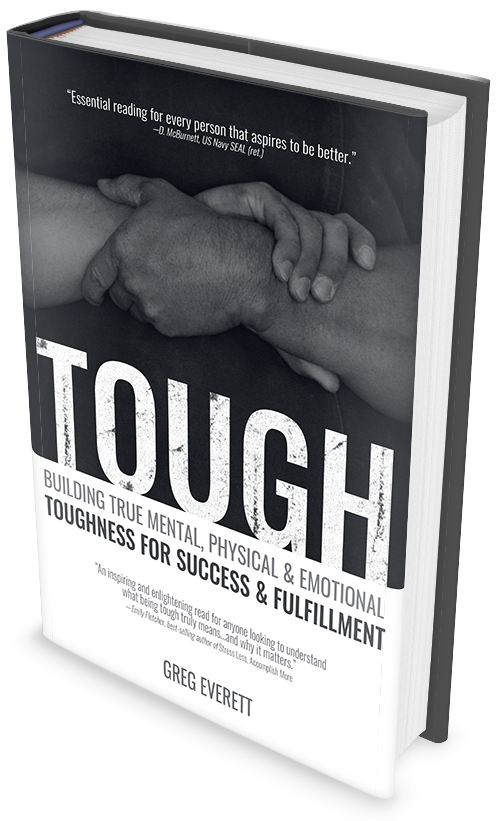What are you willing to do? Knowing who we are, being broadly capable, and possessing the capacity to endure hardship is meaningless if we’re unwilling to apply these abilities when it counts to accomplish something worthwhile—anything from saving our own or another’s life in an emergency to simply standing up for our identity and values in a social situation. Without the commitment to act, it’s all just a private fantasy creating false confidence, which may be more dangerous than not having the abilities at all but being aware of it.
The application of commitment ranges broadly from the repetitive and mundane to the extreme and unpredictable. Are we consistent in the daily routines that reinforce our character, capability and capacity—all those seemingly inconsequential things that in fact not only add up, but compound synergistically and have an enormous influence on the course and quality of our life? Are we also psychologically prepared to cope with severe danger and unpredictability productively by being totally committed to the process and making the necessary decisions?
Some of these things are basic tasks we simply chip away at day to day and use various methods to develop beneficially habitual behaviors and more effective modes of thinking to continuously improve; others are ones we need to contemplate, evaluate and make serious decisions about before we ever find ourselves in a situation that demands that particular type of commitment. In the midst of extreme danger is not the appropriate moment to step back and consider what exactly we’re willing to do in order to get through it. In such cases, the decision about commitment needs to have already been made—the only remaining decisions must be procedural in nature, and ideally largely automated at the point of necessity through prior preparation and training. This doesn’t apply exclusively to self-defense type situations, but also to issues of emergency and survival. We need to know, for example, how to start a fire, build shelter and navigate over land before we get stuck in the wilderness so we can simply execute as needed to do what we’re already committed to do—survive.
Much commitment is specific to our chosen profession or lifestyle. If we’re athletes, are we actually willing to do what it takes to achieve the goals we’ve set for ourselves? The hours and hours of often monotonous training, boring recovery protocols, restrictive nutritional practices, missing out on socializing to get in bed at 9:00 every night. If we’re in law enforcement, are we committed to consistent, rigorous physical training, frequently drilling our shooting in ways that challenge and expand our skills and automaticity with mechanics while making critical decisions, engaging in authentic force-on-force training to expose and shore up weaknesses and help immunize us against the stress of a fight, gun or otherwise?
Commitment also applies to the most fundamental pieces of life and our character—these are simple and unglamorous daily tasks and mental processes that continuously define who we are and plot the course of our lives. These are the things that are so easy to dismiss as inconsequential and meaningless, yet in truth have enormous impact on outcomes over time. Much of this falls into the arena of discipline, routine and habit building and maintenance—procedures that must be originally developed thoughtfully and with clear purpose, but ultimately transformed into habit in order to preserve as much cognitive space as possible for more complex decisions.
Don’t mistake this as implying we need to adopt a monk’s lifestyle to be successful. This isn’t a call for misery and sacrifice for its own sake. Will there be some sacrifice? Of course. Any worthwhile goal demands it. But in no way are we simply searching for new ways to deprive and torture ourselves as a pretext for calling ourselves tough. We’re purposefully establishing a robust structure to support our intentions and ensure we’re capable of accomplishing our goals—action, not hope.

